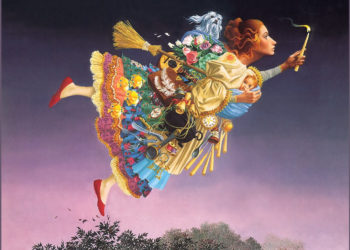It’s funny how our dreams are killed by those that are meant to nurture it; by family, friends, lovers. We’ve all been through it at some point in our life:
That well-meaning friend that tells you that business you want to start won’t be viable.
That family member that tells you drawing and painting isn’t something you make a career out of.
That person that tells you not to open a blog because everybody is doing it and nobody would notice yours in the melee.
That look of concerned amusement that passes through your significant other’s face before they summarize your dream to become an OAP as “ridiculous.”
The perceptible disdain and mockery in people’s voices when they refer to the magic you create when you invent cocktails as bartending.

Yes, we’ve all had to watch our dreams interred by the (un)consciously hurtful and well-meaning words of dear ones. And the sad thing is that once you allow those dreams to die, they hardly ever rise again. You only remember them on those cold nights when dead dreams come alive and taunt you with the memories of what could have been. But come morning, into the sarcophagus they go.
I, like most of you, have watched most of my dreams felled down before my eyes by well-meaning words. Sometimes those dreams rose like phoenixes from the ashes and other times, I watched as their remains decayed. And the story I want to tell you is based on the former.

I started writing as far back as Primary One. Nothing so special. Just your random prince-marries-princess story and Obi-stole-the-meat-from-the-pot-and-his-mother-caught-him type of stories. I know most of you might roll your eyes at the prospect but as my Dad used to say m no na enwe anuli at my level (I was having fun at my level). Primary Three was the golden year of my childhood writing career. That was when I met Kosisochukwu Nwagbo.
Fun doesn’t begin to describe the time we had in Primary 3 Orange. We’d get exercise books, cut them up, slap a back on them, and form compact novels. Then we’d write. During recess and sometimes, (Lord help me) during class time. Sometimes, I’d write and she’d draw. Other times, I’d draw and she’d write. I lived for those moments. We wrote and rewrote many stories but the ones that I can never forget were Mistaken Identity and a rewrite of Egg of life (which is funny because I had never and still haven’t watched that movie).

Now you’d think we’d be like champions in our class and all but we weren’t. Back then, my teacher (Let’s call her Mrs. Highlights. I still remember her name but let’s just go with that) detested the fact that we wrote and she never missed out on an opportunity to say so. I remember one occasion when she shouted at me because of it. Kosi and I were still working on Mistaken Identity (a beautiful story about twins who were as different as yin and yang). I can’t remember what happened or the events that led up to it. All I remember is staring at my teacher from across her desk, minutes after she came into the class from a staff meeting with her lunch.
I kept mute as she shouted. I just focused all my attention on the ribbons of steam curling out of her Moi-Moi, the way her fair fingers strangled the neck of the cold Amstel malt bottle, and the way our book lay helpless on the cluttered table. The anger I was feeling was more than an eight-year-old had any right to feel.
“…You did not come to school to write. You came to learn. Where do you think you’d end up with just writing? You came to school to read and learn and make something of yourselves not to write stupid stories…” To be honest, this tirade of hers seems tamer in English language. In Igbo, the way she said it, it was positively vitriolic.
“Look at me when I’m talking to you, Ifeanacho!”
And so I looked.
I took in her penciled-in brows that looked like two lone red rainbows, her beady eyes, taut fair face, and small, pretty teeth. The anger I felt melted away like ice-cream on a hot day as I saw the orange cover of mistaken identity disappear into one of the drawers attached to her desk. I begged and begged for the book, promised to never write again but she refused to listen to me. That day, I went home and I angrily wrote three stories. I guess my childish mind thought, “I am in my house and she can’t beat me.”

Yes, I know there is time for everything, and class time shouldn’t be a time to write stories and spin fantasies but the writing never affected our grades. I was always among the top 3 in class. Just like the North, a child’s mind never forgets. There are better ways to tell an eight-year-old that writing shouldn’t be done at certain times.

I know this story would’ve been awfully sexy and noteworthy if I could say something that goes this way:
“Despite all these, I never let my dream die. I kept hope alive. I’ve published four novels and five short-story collections and I have been long-listed for three short-story competitions and short-listed for four competitions. So it’s safe to say, I veni-d, I vidi-d and I vici-d…”

Well, that’s not the case. I’ve only been shortlisted for 3 competitions. But the important thing is that I didn’t let that dream to be killed by a well-meaning primary school teacher. I still write and will continue to write and by God’s grace, nothing is ever going to stop that. And predictably, we did make something out of our lives.

So what’s that dream you’ve FedEx-ed to the underworld because of people’s disapproval and well-meaning words? It’s not too late to get on Charon’s boat and ferry them back. And even if you don’t succeed just like they said, just remember that’s not failure. Failure only happens when you never try.
Originally published on Medium.
Like what you read? Check out Green and White: The Colors of Death and Human Rights Abuse and It’s A Biased World After All: Movie Review of 12 Angry Men (1957)








Just came from the previous article “The purrfect approach to life”, I just want to say I really like your writing, the story telling, the actual importance it carries.. it’s really nice
Thank you for reading, Joseph